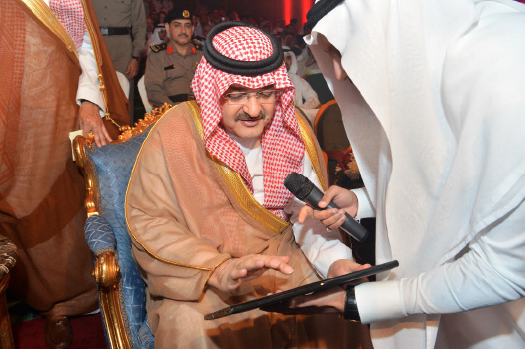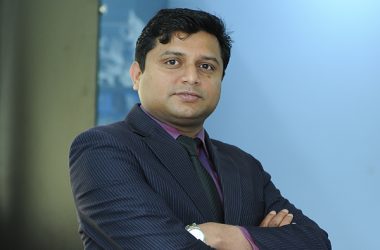King Abdulaziz University in Jeddah has a vital new research tool. Not just any new system, its High Performance Computer has been rated as the 360th most powerful supercomputer in the world. Dr Iyad Katib, Director of the High Performance Computing Centre, discusses the current and future uses of the behemoth.

As one of the most powerful systems in the Middle East, much rests on King Abdulaziz University’s (KAU) High Performance Computer (HPC). With 497 servers and 10,000 core processors, the recently completed HPC is just beginning its journey to becoming an incredibly potent tool in the advancement of knowledge and research at the University. Dr Iyad Katib, Director of the High Performance Computing Centre and Vice Dean of the Faculty of Computing and Information Technology, is extremely encouraged by the impact that the new installation has already made. “It’s added enormous value for us,” he says. “We can now analyse data in a way that simply wasn’t possible before.”
Ranked as the 360th most powerful supercomputer in the world by key index ‘TOP500’, KAU’s HPC stands as one of the Middle East’s most important technology investments. Funded by Saudi Arabia’s Ministry of Finance, KAU initially submitted a series of scientific proposals to gain the necessary funding for the HPC. Following a series of discussions, it didn’t take much to convince MoF of the merits in backing the ambitious project.
“With the vast amount of important research being undertaken here, our students and professors need answers that only technology can provide,” Dr Katib says. “Scientific fields in particular demand high computing power and memory, and the processes they undertake can demand months and even years of their time. We needed to accelerate the pace at which they could find game-changing solutions and advance KAU’s research.”
It’s not hard to imagine the complexity involved in the planning and design of such a vast system. Dr Katib points to several key factors that posed the greatest difficulties prior to the HPC’s installation. “In terms of integrating the HPC with our infrastructure at the time, that was not too much of a problem,” he says. “The real challenges arose from physical, rather than technical, issues. For instance, finding space for the racks required two years’ prior planning. Power necessities were also a main issue. The HPC requires huge quantities of electricity.” As if those concerns weren’t enough to occupy Dr Katib, cooling the designated facility presented a sizeable hurdle.
In the POC stage of the project, Dr Katib and KAU’s IT department evaluated proposals from HP, IBM and Fujitsu, eventually opting for the latter’s offering. Collectively, they decided that the HPC would consist of Primergy CX250 servers and 2PB of the firm’s Eternus storage, as well as Eaton Williams’ pressure sensor fan speed controllers for cooling.
Although KAU initially faced a three month delay due to problems in the transfer of machines – which were manufactured in Germany – installation began in September 2014, and by June 2015, the facility was complete.
At first glance, it’s easy for bystanders to get carried away at the seemingly endless possibilities of what could be achieved with such a powerful system. However, for now at least, the HPC has been designed with the intention of enhancing KAU’s broad research capabilities, initially for use by only a certain number of faculties.
In the short to mid-term, the HPC has the mandate of benefiting KAU’s – and Saudi Arabia’s – scientific community. In 2009, severe flooding affected Jeddah and Saudi Arabia’s west coast, killing over 100 people. It is precisely these types of incidents that KAU’s professors and academics are working to prevent. “The Kingdom faces a range of weather problems,” Dr Katib says. “Our climate research facility is growing, and we are always interested in developing new models of analysis. Ultimately, our aspiration is to improve forecasting guides, and anticipate disasters before they happen.” That’s not all the University is working toward. KAU’s Faculty of Medicine and Centre of Excellence in Desalination Technology are expected to be major beneficiaries of the HPC. The University is currently undertaking a large number of projects in genomic research and the processing of sea water. This work will directly benefit from faster data processing.
Although the HPC is in its nascent stages of use, with only a dozen or so senior academics currently accessing the machine, the University is doing all it can to ensure its widespread usage. The Computer Science course is currently conducted via the HPC’s use, and KAU is offering classes educating students on how their research could be enhanced via a subscription for usage of the HPC. KAU students are able to sign up for an HPC account via a simple process. All they need do is submit and have approved an academic project proposal, and, provided they have a basic knowledge of Linux, are free to use the system. “The HPC can also be accessed via a VPN and on campus,” Dr Katib says.
Projects on heat transfer and evaporation are already making good use of the system, as is one on the spread of disease. “Our scientists are now able to scale breakouts of a virus on a level that we previously could not achieve,” Dr Katib says. “This is a major step forward from a research point of view.”
Dr Katib has already noticed a marked impact on the ability of those using the HPC to draw meaningful conclusions from their research. “It’s already providing us with advanced research processing,” he says. “With its ability to perform trillions of operations per second via parallel processing, it allows us to obtain solutions that simply couldn’t be achieved before.” The immense power of the HPC is evident, with thousands of processors working simultaneously to search for resolutions across a multitude of academic conundrums. “Issues that previously may have taken years now take hours,” Dr Katib says.
Although the benefits of the HPC are yet to be fully realised, Dr. Katib is already happy to tentatively discuss his vision for its future. “Although it is still in development, quantum computing has the power to transform the HPC,” he says. “This is an entirely new approach and will require our input to evolve the HPC to fresh demands.”
Looking ahead, the HPC’s initial status as a learning support tool for KAU will inevitably change. Dr. Katib is mindful of the system’s immense potential in driving widespread benefits for Jeddah and Saudi Arabia.
“In the long term, the project hasn’t been designed with the sole intention of benefiting KAU’s researchers,” he says. “The HPC will be able to reach out to government agencies who may need it, will be a powerful tool for a variety of training courses and will benefit the city of Jeddah as a whole. It stands to have a profound impact on our society.”





